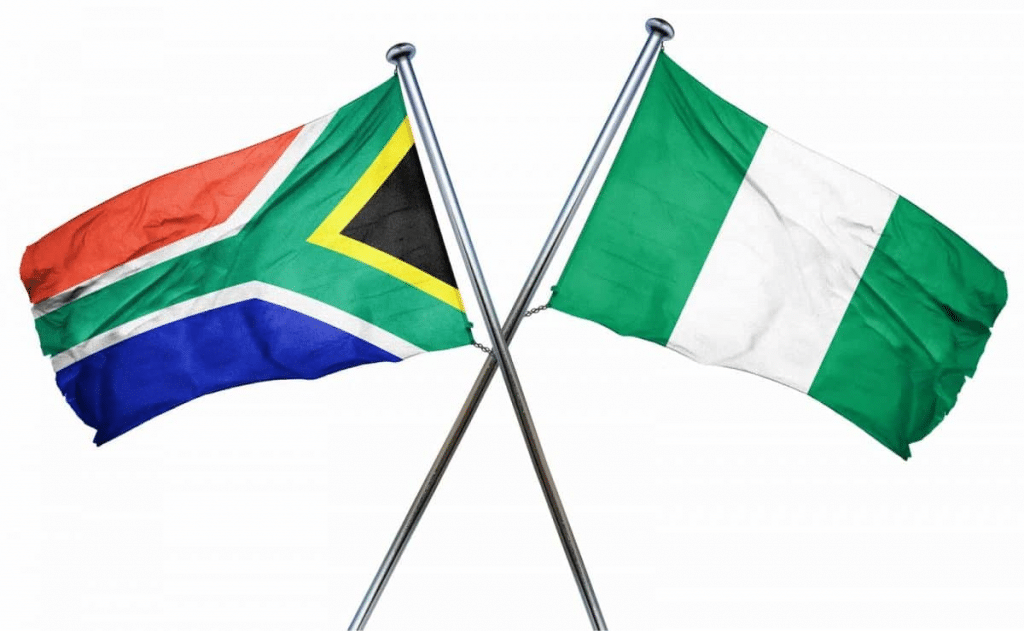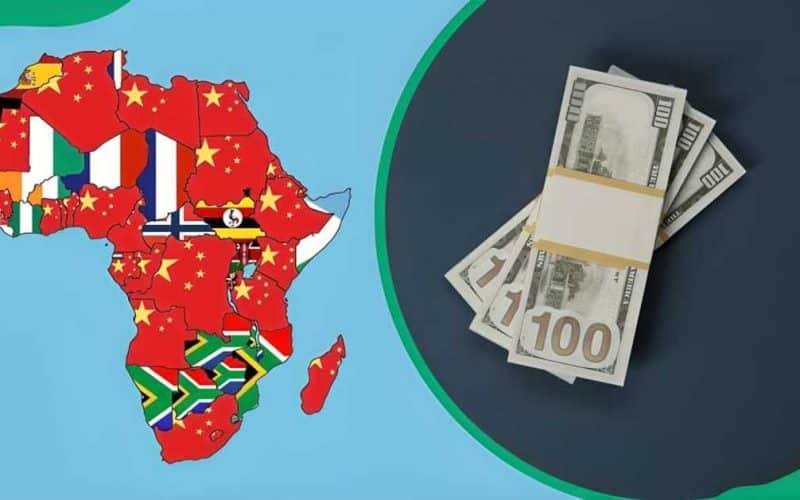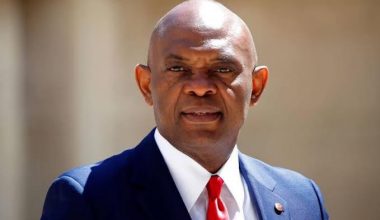Africa is a continent with different cultures, landscapes, and economies. When we think about riches, we may envision Lagos’ bustling streets, Nairobi’s innovation hubs, or Cape Town’s magnificent estates. But which is the richest country in Africa? The answer may surprise you since it involves more than just GDP figures; it’s a story about resilience, strategic planning, and resource management.
In this article, I will guide you through the process of discovering Africa’s economic superpower. Whether you’re a business professional, an economist, or simply interested in Africa’s economic environment, this in-depth look will give you a thorough knowledge of what it means to be Africa’s richest country.
What Is the Richest Country in Africa?
Before we go into the technicalities, let’s establish what makes a country “rich.” Is it GDP, per capita income, or standard of living? In my work experience, I’ve discovered that wealth is diverse. It is not just important how much money a country earns, but also how that income is divided and used to better the lives of its residents.
One would think that the richest country in Africa is the one with the biggest GDP, but this is only part of the picture. The oil industry is primarily responsible for Nigeria’s highest GDP in Africa. However, when GDP per capita, a measure of a country’s average income, is taken into account, the picture changes dramatically. Countries with smaller populations but greater incomes, such as the Seychelles and Mauritius, unexpectedly surge to the top.
Certainly! Let’s compare Nigeria and South Africa, two of Africa’s most notable economic powerhouses.
Which is Africa’s Richest Country: Nigeria or South Africa?

When it comes to Africa’s richest country, Nigeria and South Africa are typically the front-runners. These countries not only have the continent’s greatest economies, but they also wield considerable power in regional and international economic affairs. However, comparing them requires more than just looking at their GDP figures.
Nigeria: Africa’s Giant by GDP

Nigeria is sometimes recognized as Africa’s greatest economy, owing to its substantial GDP, which exceeds $500 billion. This astounding statistic is partly due to Nigeria’s massive oil reserves, which account for roughly 90% of the country’s export profits and 70% of its government revenue. The oil sector has been the backbone of Nigeria’s economy, propelling it to the top of the GDP rankings.
However, this reliance on oil has some consequences. Nigeria’s economy is particularly subject to global oil price swings, which can cause economic instability. For example, during the oil price fall of 2014–2016, Nigeria endured a severe recession, showing the risks of a mono-economy.
Additionally, even though Nigeria has the highest GDP on the continent, the majority of its population does not always enjoy the wealth that results from that GDP. With a population of over 200 million, Nigeria’s GDP per capita is over $2,397. This comparatively low statistic suggests that money is not evenly distributed throughout the people, with a sizable proportion of Nigerians living in poverty.
Nigeria also has issues in infrastructure, education, and healthcare. The country’s infrastructure is weak, with frequent power outages, poor road networks, and insufficient public transportation stifling economic growth. Overcrowded classrooms, limited budgets, and poor teacher quality all contribute to low reading and skill levels in the educational system. Healthcare services are similarly underfunded and overburdened, leaving many Nigerians without access to basic medical treatment.
South Africa: Diverse Economic Powerhouse

South Africa, with a GDP of approximately $350 billion, has a more diverse economy that includes mining, manufacturing, agriculture, and a strong services sector. The South Africa’s economy is less reliant on a single industry, which gives some protection against global market instability. While mining (especially gold, diamonds, and platinum) is important to the economy, the manufacturing industry, financial services, tourism, and retail also make considerable contributions to GDP.
This diversification has enabled South Africa to maintain a more stable economic environment than Nigeria. Furthermore, South Africa’s GDP per capita is substantially greater, at around $5,090, indicating a more equitable distribution of income among its 60 million inhabitants. This higher GDP per capita reflects the country’s improved infrastructure, healthcare, and education system.
South Africa’s infrastructure is among the best on the continent, with well-maintained roads, extensive public transportation networks, and dependable electricity supply, though the country has experienced power outages in recent years due to problems with its national electricity provider, Eskom. The country’s education system, while not without flaws, is reasonably well-funded and has created a qualified workforce to support the industrial and service sectors. South Africa’s healthcare system is much more developed than Nigeria’s, with greater access to medical facilities and services, while there remains a large discrepancy between public and private healthcare.
Other Rich Countries in Africa: Mauritius and Seychelles

While Nigeria and South Africa frequently receive the focus, smaller countries such as Mauritius and Seychelles have intriguing stories of economic development. Mauritius, for example, has transitioned from a low-income, agriculture-based economy to an upper-middle-income, diverse economy with sectors including textiles, tourism, and financial services.
Mauritius has one of Africa’s highest per capita GDPs, at $11,360. The country’s strategic position, stable governance, and investor-friendly regulations have drawn foreign direct investment, establishing it as an African economic development model.
Similarly, with a GDP per capita of $15,407, Seychelles relies on tourism and fishing to maintain one of Africa’s best living standards. These countries show that riches is more than just size; it is also about sound economic planning and sustainable development.
Key Economic Indicators for Africa’s Richest Countries
To really comprehend the economic power of the richest country in Africa, we must consider a variety of measures other than GDP. Here is a breakdown of some key statistics:
- GDP Growth Rate: Nigeria’s growth rates have been unpredictable due to its reliance on oil, ranging from 2% to 7% over the last decade. In comparison, South Africa’s growth has been more consistent, if slower, averaging 1.5% to 3% every year.
- Human Development Index (HDI): South Africa rates higher on the HDI, which assesses a country’s average health, education, and income levels. South Africa is a developing country with an HDI of 0.705, but Nigeria, with an HDI of 0.539, has a long way to go.
- Foreign Direct Investment (FDI): Mauritius and the Seychelles attract significant FDI relative to their size, owing to their political stability, strategic position, and good business environments. These investments fuel sectors that contribute considerably to their respective GDPs.
I remember my first visit to Lagos, Nigeria. The city’s vitality was tangible, and the sheer volume of economic activity was staggering. Despite the wealth that oil provided, I couldn’t ignore the stark disparity in living standards. This encounter encouraged me to delve deeper into the aspects that determine a country’s wealth. It became evident that, while GDP is an important indicator, it does not represent the entire picture of wealth.
Later, on a vacation to Mauritius, I was amazed by how a smaller country with fewer natural resources could maintain such high levels of living. It was more than simply numbers; it was about smart resource allocation, governance, and a focus on education and healthcare.
Template: Economic Analysis for Business Professionals
If you are a business professional wanting to examine a region’s economic potential, I have created a complete Economic Analysis Template that will walk you through the essential metrics to consider. This template has sections for GDP analysis, FDI patterns, infrastructure quality, and social development indicators. Using this template, you may acquire a comprehensive understanding of a country’s economic health, which is critical for making sound investment decisions.
This template is especially beneficial if you’re looking into investing opportunities in emerging markets like Africa. It enables you to compare countries based on a variety of economic variables, assisting you in identifying the most potential areas for growth. Download the template here.
Economic Analysis Template
What Factors Affect a Country’s Wealth?
When examining what makes a country prosperous, it is important to consider several aspects, including:
- Natural Resources: Nigeria and Angola rely heavily on petroleum and natural gas. However, riches derived from natural resources can be a double-edged sword, causing economic instability if not properly handled.
- Diversified Economy: South Africa’s economy is more diverse, with strong contributions from manufacturing, services, and mining, making it less vulnerable to global commodity price changes.
- Education and Healthcare: Countries that invest heavily in education and healthcare, such as Mauritius and South Africa, tend to have higher HDI scores, indicating greater living standards.
- Political Stability: Countries with stable administrations, such as Botswana, are better able to attract FDI, which is critical for economic progress.
- Infrastructure Development: Adequate transportation, communication, and energy infrastructure serves as the foundation for economic activity and has the potential to considerably increase a country’s wealth.
How Does Population Impact a Country’s Wealth?
Population size has a tremendous impact on a country’s economic dynamics. While a huge population like Nigeria might give a large labor force and consumer market, it also presents obstacles in terms of infrastructure, education, and healthcare. Countries with smaller populations, such as the Seychelles, can better manage and share their income, resulting in higher GDP per capita.
What Is the Role of Governance in National Wealth?
Good governance is crucial to economic growth. Countries with open and responsible governments are more likely to enact policies that encourage economic growth and fair income distribution. Botswana, for example, is frequently credited with successfully managing its diamond resources due to excellent governance and anti-corruption efforts.
Key Takeaways
- It is more than simply GDP; it is also about how wealth is dispersed and used to improve people’s lives.
- South Africa’s economic stability stems from its diverse economy, which is not unduly reliant on any one sector.
- Countries with smaller populations, such as Mauritius and the Seychelles, have demonstrated that strategic planning and resource management are critical to economic success.
- Good governance is essential for managing resources and achieving equal wealth distribution.
- Countries with superior infrastructure, healthcare, and education systems tend to have higher living standards and more stable economies.
Conclusion
Unveiling Africa’s richest country demands looking beyond GDP metrics. It’s about knowing the subtleties of economic development, government, and how wealth affects quality of life. As we have seen, South Africa, Mauritius, and the Seychelles provide excellent lessons in strategic economic planning and development. Whether you’re an investor, a policymaker, or simply interested in Africa’s future, these insights will help you comprehend what it truly means to be an economic powerhouse.
What do you believe is the most important aspect in determining a country’s wealth?
- The Poorest Country in Africa and Its Struggle for Economic Revival
- PER CAPITA INCOME: Definition & What You Must Know
- 25+ SME GRANTS FOR AFRICANS in 2024 (Updated!!!)
- Balance Of Trade: Explained!!! Meaning, Importance, Formula
- Top 10 Richest Men In Africa In 2024






